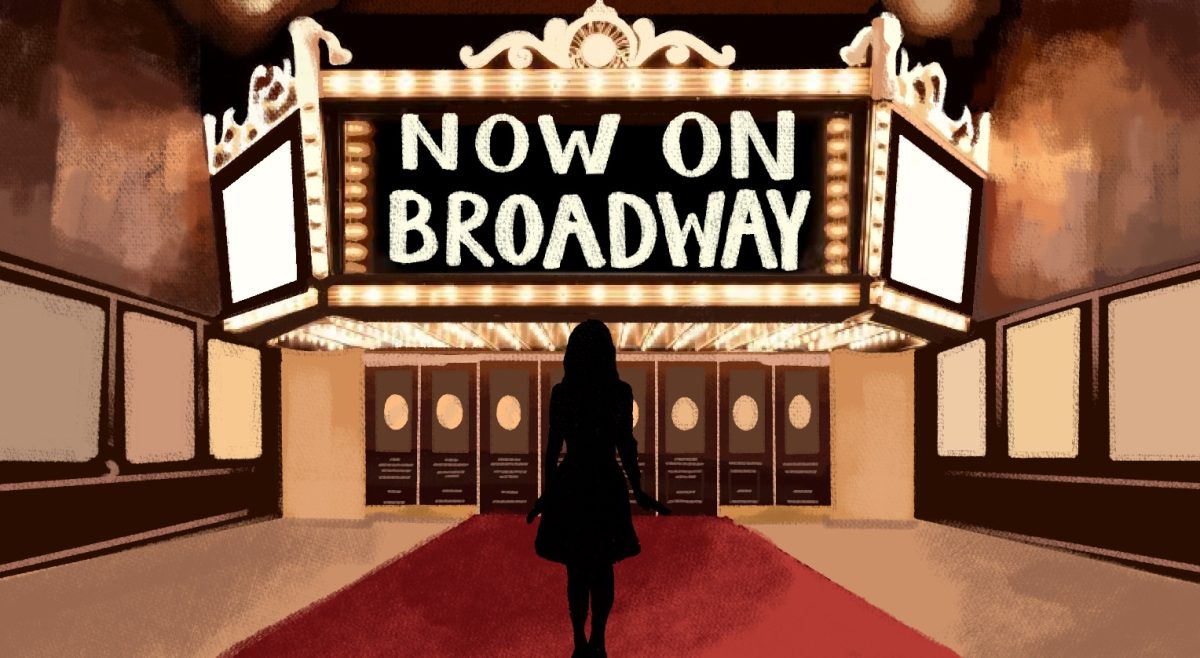
(Connor O'Brien / Heights Editor)
I will fully admit to the Heights and to the world that yes, I am a theater kid. There’s no feeling in the world quite like when the lights dim and the curtains rise, revealing a cast of characters who allow me to step into their world for a few hours.
With the right performers, shows become so engrossing that you forget the events on stage were fabricated until the curtain call begins. But as many artistic industries suffer from rising costs and creativity droughts, the theater is among them. So, how do Broadway producers ensure their shows stay open despite less cash in the bank? Easy, star power.
This practice of bringing in a celebrity to boost ticket sales, known as stunt casting, has become the norm. One cannot walk a street in New York City without seeing a billboard with a famous movie or television star coming to Broadway. And while yes, it is super cool to see your favorite actor in the flesh, it’s perpetuating the problem by being a temporary solution with dire consequences.
At first glance, it’s perfectly understandable why producers are calling celebrities to Broadway. Movie stars and media personalities bring a flood of tourists who are dying to see them. More audience members equals more money.
Yet a big problem arrives once that star leaves the show: ticket sales instantly plummet. The only way to keep the cash flowing is to bring in another big name. A great example is the Off-Broadway revival of Little Shop of Horrors. Every few months, it cycles out famous performers playing Seymour and Audrey just to keep the show afloat.
This is mainly due to the fact that Broadway has been struggling financially since the COVID-19 pandemic. Shows have been closing after a few months and sometimes, mere weeks. Very few have lasted over a year. This pattern tells producers that they need to bring in a celebrity to break even. And another. And another. Prices to put on shows are rising, but demand simply isn’t, without a star.
If the shows with star power are the only ones that last more than two months on Broadway, every other show is going to follow suit. That’s the only way to compete.
Not only is this disastrous from a financial longevity standpoint, but these celebrities are hardly ever as fit for the role as an experienced musical theater performer. The videos of former Vine star Cameron Dallas in Mean Girls: The Musical are laughable. Wendy Williams in Chicago was less than grand. Colleen Ballinger in Waitress wasn’t up to par with her co-stars, and TikTok star Charli D’Amelio was passable in & Juliet.
Don’t even get me started on how this problem is even worse for movie musical adaptations. Russell Crowe should have never gone near Les Misérables.
But like every rule, there are exceptions. This summer, I saw Maybe Happy Ending, starring Darren Criss of Glee fame. I will admit, I did decide to go because of Criss’s name on the marquee. His performance was so riveting, however, that I can easily see why he recently won the Tony Award for Best Actor in a Musical. Certainly, famous stars should be able to return to their love of the stage.
Other shows are successfully stunt-casting with famous theater performers as well, such as Aaron Tveit and Lea Michele in the upcoming revival of Chess. Like with Criss in Maybe Happy Ending, more star power will need to be brought in once they depart the production. Castings like these are not bettering the issue, but at least the performers can carry a tune.
This trend also makes breaking into an ironclad industry exponentially harder. Talented unknowns are less and less likely to get their big break because they can’t get into the audition room. Breaking into the industry is already a shot in the dark and near impossible. The days of performers becoming stars overnight from a smashing debut are coming to an end. Shows are losing artistic merit in spades for utilizing fame over talent, which will only make the theater industry suffer in the long run.
But at the present moment, the bottom line is that you need a famous star or two at the helm of a show to keep it running. That, or you need your show to be based on a pre-existing piece of media. But those are just stemming from the same thing: Audience members are coming to see the celebrities or movies they love. Original shows and fresh new faces are dying out, until all that’s left is regurgitated Hollywood.
The theater business is falling to the whims of tourists and putting on their favorites, such as Harry Potter and the Cursed Child, Moulin Rouge: The Musical, The Outsiders, or The Notebook. Audiences are coming to see Nick Jonas and Carly Rae Jepsen, not true triple threats.
Any show that doesn’t conform to this new way of theater closes. Even shows that do stunt cast end up closing once their money-maker leaves. It’s not a sustainable practice for long-term costs, celebrities, theater performers, or audiences. While it may be a temporary solution to a grim financial problem, Broadway needs a new one. Otherwise, who knows if it will ever truly recover.